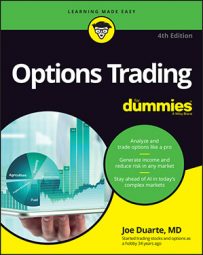When a dealer buys a U.S. dollar, regardless of where in the world the transaction takes place, the actual deposit is located either directly in a U.S. bank or in a claim of a foreign bank on a dollar deposit located in the United States. The same is true of the currency of any other country.
Different countries, different rules
The actual infrastructures of the various currency markets and how they operate are determined by each separate nation. Each country enforces its own laws, banking regulations, accounting rules, and tax codes, and each country determines its method of payment and the settlement system. Yikes! Doesn’t that mean you have to know a lot about international monetary laws to be able to trade? Yup — especially if you want to be successful.Luckily, considerable global cooperation exists among exchange regulators, which minimizes differences and helps protect Forex traders from fraud and abuse. In the United States, the U.S. Commodity Futures Trading Commission (CFTC) sets rules and investigates any problems involving U.S. currency trades. The CFTC reaches agreements, or memoranda of understanding (MOUs), with most major nations that have active currency exchanges. These MOUs form a method of cooperation between regulatory and enforcement authorities across international borders that combats fraud and other illegal practices that can harm customers or threaten market integrity.
If you plan to become involved in Forex, be sure to visit the CFTC’s website to bone up on your knowledge of international laws and find information about recently exposed scams and other illegal activities. You certainly don’t want to get caught up in a fraudulent deal and lose all your money.
The almighty (U.S.) dollar
The U.S. dollar is the most widely traded currency by far. Based on a Federal Reserve survey, the dollar is one of two currencies that are involved in more than 88 percent of all global foreign exchange transactions.The U.S. dollar wears many hats, serving as an investment currency in many capital markets, a reserve currency for many central banks, a transaction currency for many commodity trades, an invoice currency for many contracts, and a currency of intervention used by countries that want to influence the values of their own currencies.
Organized exchanges
The money market is largely unregulated as a defined market. This means that a commercial bank in the United States doesn’t need any special authorization to trade or deal in foreign currencies. Securities and brokerage firms don’t need special permission from the Securities and Exchange Commission (SEC) or any other regulatory body to carry out foreign exchange activities.Transactions can be carried out based on whatever terms the law permits and using whatever provisions are acceptable to the two parties, subject to the commercial law governing business transactions. Of course, that means the money market is the closest thing to the Wild West you’ll find in the trading world. Almost anything goes.
Institutions that participate aren’t inspected specifically for their exchange practices, but regulatory authorities nevertheless look into trading systems as part of their regular examinations of financial institutions, just to be sure they’re operating under the country’s commercial banking or securities laws.Although no official rules or restrictions govern the hours or conditions of trading on this over‐the‐counter (OTC) market in the United States, trading conventions developed mostly by market participants are in place. The OTC market for foreign currency trading is any currency trading done outside the confines of an exchange, such as the CME Group. You can find out what those rules are by contacting the Federal Bank of New York, which produces and regularly updates the Guidelines for Foreign Exchange Trading Activities.
These guidelines clarify common market practices and offer “best practice recommendations.” Before you become a trader, protect yourself by making sure you’re working with a dealer or a broker that follows these guidelines. You can access the most current version, revised in November 2010. The New York Federal Reserve regularly issues updates to the guidelines, which you can find on its website.The OTC currency exchange market accounts for more than 90 percent of the total U.S. foreign exchange market, including spot transactions, forwards, and swaps. If you’re new to Forex trading, starting out is much safer on an organized exchange, where you can trade currency futures and certain currency options. The Chicago Mercantile Exchange (CME) is one of the largest, and it offers excellent educational materials to help you get started.
Organized exchanges and regulations governing them are considerably different from the OTC foreign currency market. Trading actually takes place in a centralized location rather than through a network of computers and telephones. Each of the respective exchanges regulates hours and trading practices, and their products are standardized. Organized exchanges also are equipped with central clearinghouses for payments and cash settlements.
